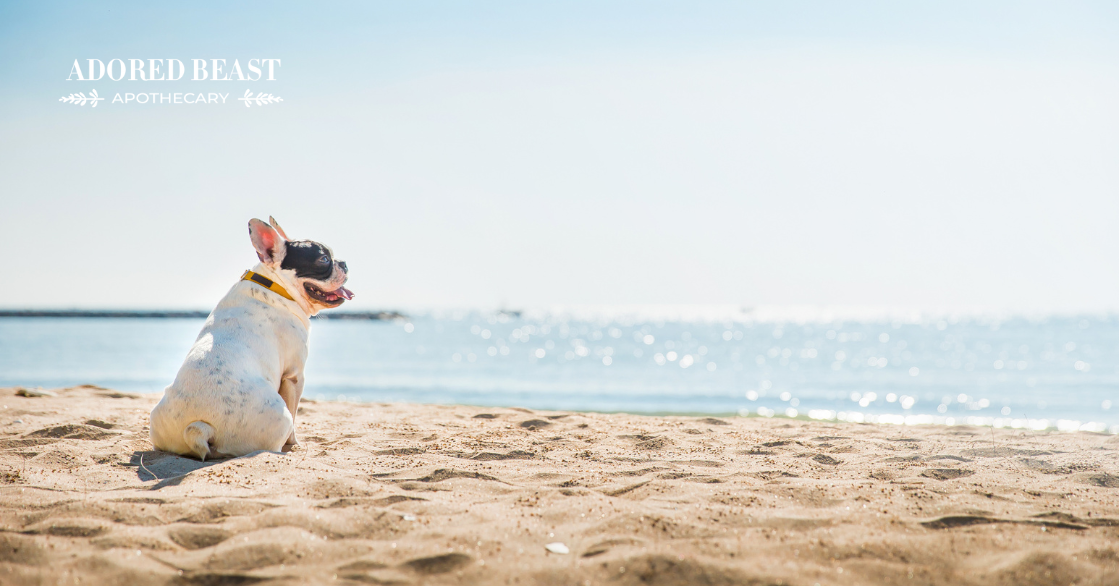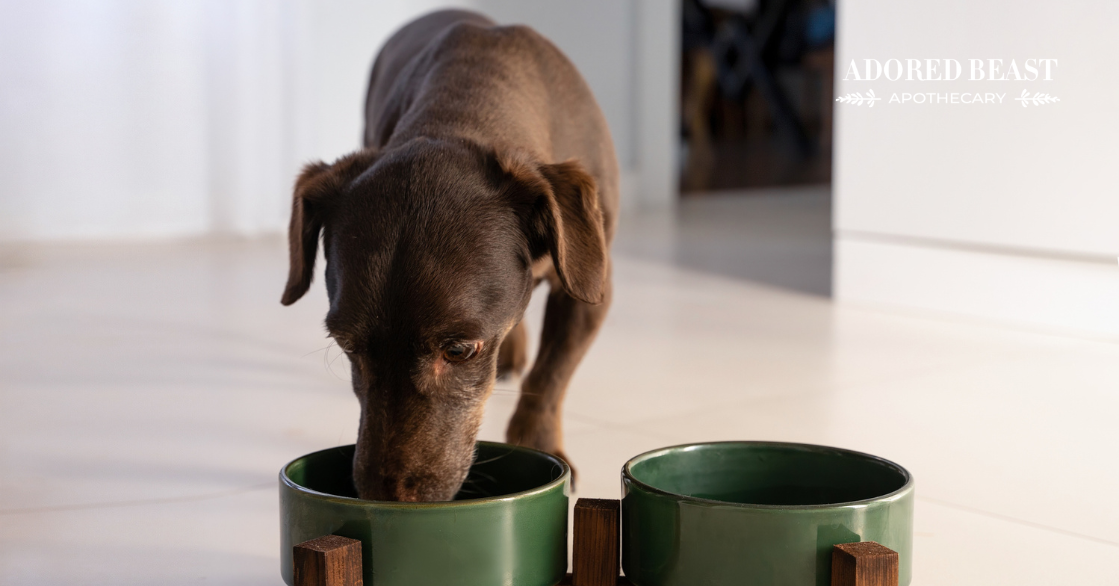We’re all familiar with the importance of protecting our skin from the sun’s harsh UV rays. We apply SPF 50, wear wide-brimmed hats or long sleeves, and sit in the shade. But what about our pets? Dogs and cats, especially those with light-coloured fur or exposed skin, can get sunburned too.
Of course, we want to keep them safe, but when it comes to sun protection, using human sunscreen for dogs and cats can do more harm than good. So, here’s what you need to know about the dangers of sunscreen for pets and how to keep your furry friend sun-safe in safer, more natural ways.
Yes, Pets Can Get Sunburned
Although their fur offers some protection, dogs and cats are not immune to sun damage. Areas with little or no fur – like the nose, ears, belly, or areas with thinning hair – are particularly vulnerable. White or light-coloured pets, as well as short-haired or hairless breeds, are especially susceptible to sunburn. Additionally, if your pet has a bald spot or a wound, that area may be at a significantly higher risk.
Sunburn on pets can cause:
- Red, inflamed skin
- Itching or pain
- Dry, cracked, or peeling areas
- Increased risk of skin cancer with chronic exposure
Don’t forget about indoor pets! Cats and dogs who love sunbathing by the window are still at risk from UV rays. UV-filtering window film or blinds can help block harmful rays without spoiling their favorite nap spot.
Being proactive about sun safety is important, but is sunscreen the answer?
The Dangers of Sunscreen for Dogs and Cats
Most sunscreens are formulated for humans, not pets. And what’s safe for us can be toxic to them. Many common sunscreen ingredients can be dangerous or even life-threatening to animals if licked off their skin or fur.
Toxic ingredients to avoid include:
- Zinc oxide – A common ingredient in many sunscreens, zinc oxide is highly toxic to dogs and cats if ingested. It can cause vomiting, diarrhea, and even damage red blood cells, leading to anemia.
- Salicylates – Found in some chemical sunscreens, these can also be harmful to pets.
- Fragrances and preservatives – Many of the added chemicals in sunscreens can irritate your pet’s skin or cause allergic reactions.
- Oxybenzone and avobenzone – These chemical filters can be endocrine disruptors and are not safe for animals.
Even human sunscreens marketed as “natural” or “organic” are not necessarily pet-safe. Since animals groom themselves, there’s always a good chance they’ll lick any product off their bodies.
Tip: This means they shouldn’t be licking it off your skin either!
Safer Ways to Protect Your Pet from the Sun
So, regular sunscreen for dogs and cats is not a viable option. Thankfully, there are other, safer ways to help prevent sunburn and minimize sun exposure for your pets:
1. Limit Time in Direct Sunlight
The safest and simplest option is to keep your pet out of the sun during peak UV hours (usually between 10 a.m. and 4 p.m.). Opt for early morning or evening walks, and provide shaded areas when they’re outside.
2. Provide Shade
Make sure your outdoor space has plenty of shade, natural (like trees) or artificial (like umbrellas or canopies). If you’re at the beach or park, bring a pop-up tent or set up in a shaded area where your pet can cool off.
3. Use Protective Clothing
Pet-safe UV-protective clothing is a great way to shield sensitive areas from the sun. Look for lightweight, breathable garments designed specifically for dogs or cats. Bonus: Many come with SPF-rated fabric. Of course, be careful with the temperature – you don’t want your pet to overheat. If it’s too hot, clothing can be too much, in which case getting out of the sun is the best bet.
4. Pet-Specific Sunscreens (with Caution)
There are some veterinarian-approved sunscreens formulated just for pets, free of harmful ingredients like zinc oxide or PABA. If you choose to use one, make sure:
- It’s labeled specifically for pets
- You apply it only to exposed areas (like the nose, ears, or belly)
- You monitor your pet to ensure they don’t lick it off
That said, even some “pet-safe” sunscreens contain harmful ingredients such as propylene glycol, a known skin irritant!
5. Leave Felix and Fido at Home
If staying in the shade is going to be difficult, your safest option may be to leave your adored beasts at home where it’s cool and shaded. Sure, we know you want them with you, but sometimes it’s just not in their best interest.
While it’s true that our pets can suffer sunburn and skin damage just like us, using regular sunscreen for dogs and cats is not a safe solution. Many ingredients in human sunscreen are toxic to pets and can lead to serious health issues if ingested. Instead, use a combination of shade, timing, and protective clothing to keep your furry friend sun-safe. Or, if it’s just not feasible, keep them inside. Being sun-smart with your pets means thinking beyond sunscreen, and keeping them both healthy and happy all summer long.












